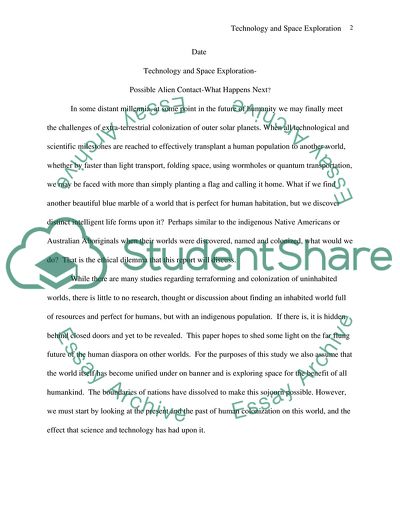Cite this document
(The Discovery of Extraterrestrial Life: Are We Alone Essay, n.d.)
The Discovery of Extraterrestrial Life: Are We Alone Essay. Retrieved from https://studentshare.org/astronomy/1712377-technology-and-space-exploration-possible-alien-contact-what-happens
The Discovery of Extraterrestrial Life: Are We Alone Essay. Retrieved from https://studentshare.org/astronomy/1712377-technology-and-space-exploration-possible-alien-contact-what-happens
(The Discovery of Extraterrestrial Life: Are We Alone Essay)
The Discovery of Extraterrestrial Life: Are We Alone Essay. https://studentshare.org/astronomy/1712377-technology-and-space-exploration-possible-alien-contact-what-happens.
The Discovery of Extraterrestrial Life: Are We Alone Essay. https://studentshare.org/astronomy/1712377-technology-and-space-exploration-possible-alien-contact-what-happens.
“The Discovery of Extraterrestrial Life: Are We Alone Essay”. https://studentshare.org/astronomy/1712377-technology-and-space-exploration-possible-alien-contact-what-happens.


